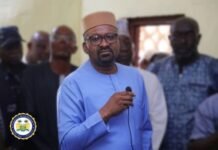The University of Sierra Leone (USL) is under intense scrutiny following a high-level University Court session convened on Thursday, April 3, 2025, to deliberate on the findings of a corruption investigation that unearthed extensive administrative, financial and procurement malpractices spanning June 2018 to January 2024.
The probe, commissioned by the Ministry of Technical and Higher Education, was conducted by an independent committee in accordance with statutory guidelines, including the Universities Act 2021 and USL’s internal financial and human resource policies. The investigative report, submitted in January, highlights systemic governance lapses at the institution’s highest echelons, implicating key offices such as the former Vice-Chancellor and Principal (VC&P), the Finance Director and the Registrar in the breakdown of financial accountability and operational oversight.
Among the damning revelations are irregular recruitment practices, mismanagement of university funds and blatant non-compliance with procurement regulations. The report further underscores a troubling lack of institutional memory, exacerbated by inadequate handover processes and a pattern of non-cooperation from certain former officials.
In light of these findings, the report recommends establishing sub-committees to conduct deeper inquiries into specific cases of malpractice, reflecting the scale and intricacy of the issues at hand. Analysts believe the investigation’s fallout could catalyze sweeping reforms aimed at reinforcing governance structures within Sierra Leone’s premier academic institution.
Presiding over the closed-door session, Chancellor and Paramount Chief, Dr. Margret Baio Gbannie IV, faces mounting pressure to spearhead a credible reform agenda that restores confidence in the University’s administration and upholds principles of transparency, professionalism and integrity.
While the proceedings remained exclusive to University Court members, sources within the institution have confirmed that key decisions, particularly those of public significance, will be formally communicated in due course.




